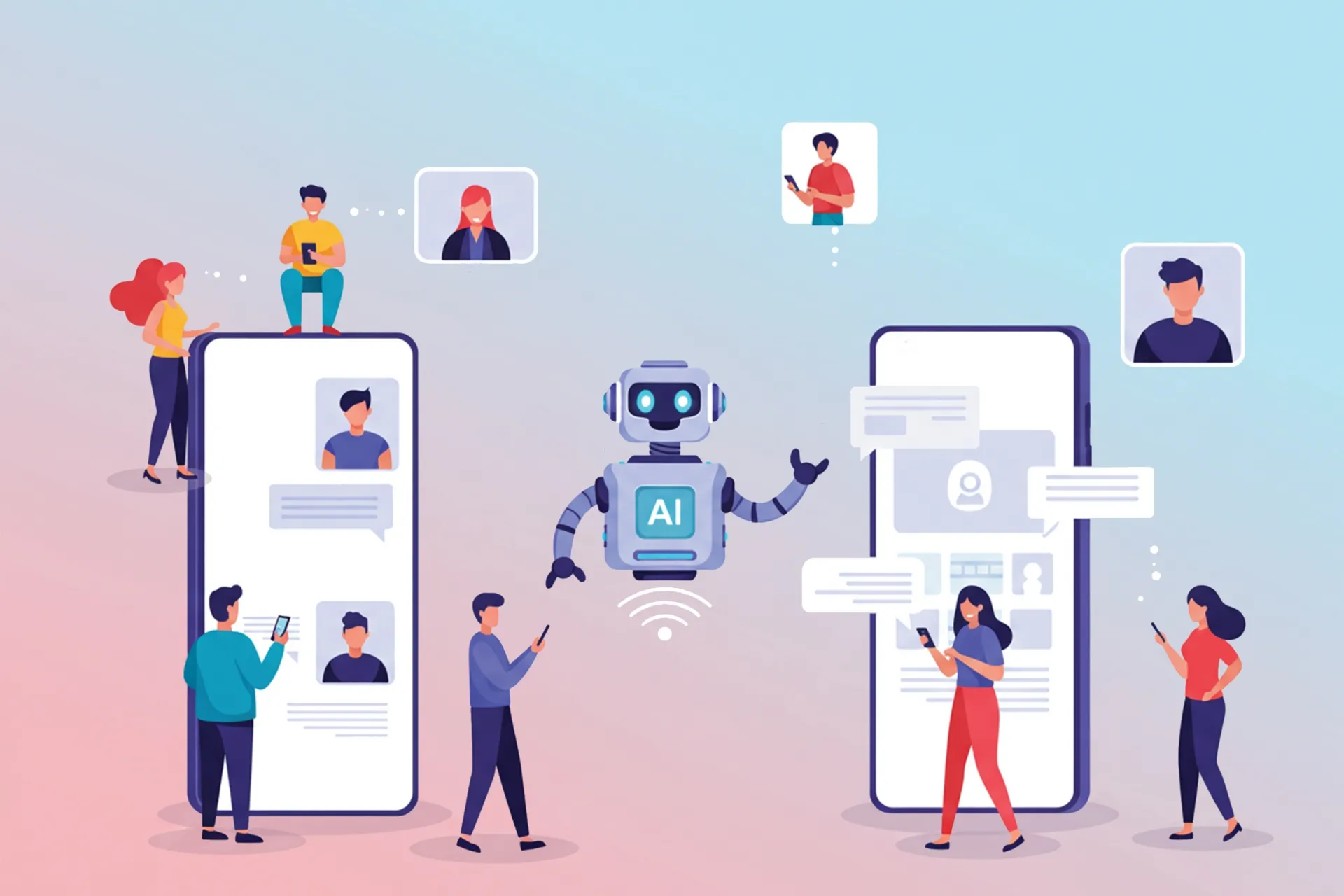Have you ever wondered why your Facebook shows you the exact products you need? Or how Netflix knows what you'll want to watch tonight? The answer is simple: artificial intelligence is working in the background and changing everything we know about digital marketing.
As an agency that works with the latest technologies every day, we can tell you one thing: AI is no longer the future. It's the game-changing present right now.
Why AI is becoming an indispensable part of marketing
Imagine having an assistant that never sleeps, analyzes thousands of pieces of data per second, and always knows what your customers want. That's what AI brings to digital marketing.
Our clients using AI technologies have seen incredible results. One web shop owner in Zadar increased sales by 40% just because AI started personalizing product recommendations. For another client, a local optician, AI helped reduce advertising costs by 35% while increasing the number of appointments.
This technology works so well because it learns from every click, every visit, every purchase. The more data it has, the better it gets. And the best part? It works 24 hours a day, nonstop.
Concrete ways AI is changing marketing

Automation that saves time and money
Forget about boring tasks that take up hours. AI can take over:
Chatbot conversations – Most users don't even know they are talking to a bot that answers their questions about website prices or terms.
Automatic content publishing – AI tracks when your audience is most active and publishes content in best time to get engaged.
Email sequences – Instead of sending the same emails to everyone, AI sends personalized messages based on user behavior.
Personalization on a whole new level
We all expect a website or app to adapt to us. AI makes this possible in ways we couldn't have imagined before.
Let's say you own a beauty salon. AI can analyze when each client typically visits, what services they prefer, and even the weather forecast to predict whether someone will need a hair treatment. It then automatically sends personalized offers at the right time.
For website optimization, AI tracks how users behave and dynamically changes content to improve the user experience.
Predicting trends before the competition
What if you knew what your customers would want before they did? AI analyzes patterns and predicts future needs.
We recently helped a tourism client prepare campaigns for the new season three months in advance. AI analyzed data from previous years and predicted which destinations would be popular. The result? It was ready when everyone else was still planning their strategy.
Practical steps to get started with AI

Start with the basics.
You don't have to revolutionize your entire marketing at once. Here's how to get started:
Use AI to analyze existing data – Most of you already have Google Analytics, Facebook Analytics, and other tools. AI can find patterns that you don't see.
Place a chatbot on a website – Start with simple answers to the most frequently asked questions about your services or the process of creating a website.
Automate email marketing – Instead of sending electronic newsletters to everyone, segment your audience and send relevant messages.
Focus on data quality
AI is only as good as the data you give it. If you enter the wrong information, you will get the wrong results.
It is important:
- Regular database cleaning
- Collecting relevant information about clients
- Compliance with GDPR regulations and privacy
Combine AI with a human approach
Technology is a great tool, but it cannot replace human creativity and understanding. The best results come when AI and humans work together.
In our agency, we use AI for analysis and optimization, but creative decisions and branding strategies always brought by our experts.
Challenges to be aware of

Data privacy
With great power comes great responsibility. AI uses a lot of user data, which means you need to be extra careful with privacy.
Always:
- Request consent for data use
- Be clear about how you use the information
- Comply with Croatian and European data protection laws
Maintaining the human touch
People still don't care whether they're dealing with a robot or a person. AI should be used wisely, so that it enhances the user experience, not makes it colder.
Continuous learning
AI technology is evolving rapidly. What is cutting-edge technology today may be obsolete tomorrow. It is important to follow trends and continuously educate yourself.
Why waiting is expensive
While you're considering whether to implement AI, your competition is already using it. Every day of delay means a lag that will be harder to catch up on.
AI is not a passing fad. This is the new reality of digital marketing. Those who adapt faster will have a significant advantage.
One of our clients from local SEO optimization increased the number of new clients by 60% just because it started using AI to analyze local trends and customize content.
Your next step
If you're ready to try out how AI can transform your marketing, don't wait. Start with small experiments, test what works for your industry, and gradually expand your usage.
The most important thing is to get started. Every day that goes by without using AI is a missed opportunity for growth.
Are you curious about how AI could help your business? Make an appointment free SEO analysis and discover concrete opportunities to improve results with the help of artificial intelligence.




